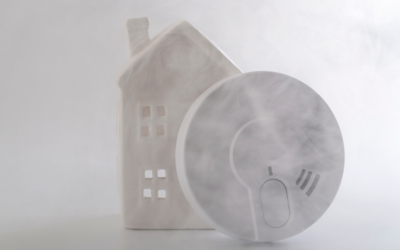As the flowers bloom and the days grow longer, it’s clear that summer is just around the corner. While it’s a perfect time for outdoor activities and vacations, it’s also crucial to prepare your home for the heat, starting with your HVAC system. Ensuring your HVAC system is primed for summer not only increases its efficiency but also reduces energy bills, improves comfort levels, and most importantly, prevents unexpected breakdowns during the hottest days of the year. Let’s walk through a pre-summer HVAC checklist that will keep your system running smoothly, so you can enjoy a cool and comfortable home all summer long.
Understanding Your HVAC System
A Quick Primer on Basic Components: Before diving into maintenance, it’s helpful to understand the key components of your HVAC system. A typical system includes an outdoor unit (containing the compressor and condenser coil), an indoor unit (evaporator and fan), air ducts, and a thermostat. These parts work together to heat and cool your home efficiently.
Importance of Knowing Your System’s Specifics: Each HVAC system is unique. Knowing the specifics of your system—such as the model, type, and age—can greatly aid in proper maintenance and troubleshooting. This information will help you purchase the correct parts, understand the system’s capacity, and determine if upgrades are necessary.
Visually Inspecting the HVAC Unit
Outdoor Unit:
- Start by inspecting the outdoor unit. Make sure there’s no debris, such as leaves, dirt, or twigs blocking the airflow. It’s crucial to maintain at least a two-foot clearance around the unit for optimal performance.
- Check for any signs of damage or rust on the unit which could affect its functionality.
Indoor Unit:
- Look for any signs of leakage around the indoor unit. Water spots or a musty smell can indicate a problem.
- Examine visible parts for wear and tear. If anything seems out of place, it might be time to call a professional.
Importance of Visual Inspections: Regular visual inspections are vital as they allow for early detection of potential issues that could lead to bigger problems. Catching these early can save time, money, and discomfort.
Cleaning or Replacing Air Filters
Importance of Clean Air Filters: One of the simplest yet most effective ways to maintain your HVAC efficiency is to keep the air filters clean. Dirty filters restrict airflow, reduce efficiency, and put strain on your system, leading to higher energy consumption and reduced lifespan of the unit.
Step-by-Step Guide on How to Check and Change Air Filters:
- Turn off the unit before attempting to change the filter.
- Locate the filter slot and slide out the old filter. Note the size and type indicated on the edge of the filter.
- If the filter is reusable, clean it according to the manufacturer’s instructions; if it’s disposable, replace it with a new one.
- Insert the clean or new filter back into the slot, making sure it’s facing the correct direction (arrows on the filter’s frame should point toward the furnace or air handler).
Recommended Types of Filters and Frequency of Change:
- Fiberglass filters are a common, inexpensive option but need to be changed more frequently—usually every 30 days.
- Pleated high-efficiency filters can last 3 to 6 months and are better at trapping small particles.
- Always check your system’s manual for specific recommendations regarding filter type and change frequency.
By following these initial steps, you can ensure that your HVAC system is clean, efficient, and ready to tackle the summer heat. Stay tuned for more tips on maintaining your system and ensuring a cool and comfortable season.
Checking and Cleaning Air Ducts
The Role of Air Ducts: Air ducts play a crucial role in your HVAC system, distributing air throughout your home. Clean and intact ductwork is essential for maintaining good air quality and system efficiency. Any leaks or blockages can lead to uneven cooling, increased energy consumption, and strain on your HVAC unit.
How to Visually Inspect Ducts:
- Look for Dust Buildup: Use a flashlight to inspect the accessible parts of your ducts for dust and debris. Excessive dust can hinder airflow and degrade air quality.
- Check for Damage: Look for any holes, tears, or disconnected joints in the ductwork. Such damage can cause conditioned air to escape, leading to higher energy bills and reduced system efficiency.
When to Consider Professional Duct Cleaning: If you notice substantial mold growth inside hard surface (e.g., sheet metal) ducts or on other components of your heating and cooling system, dust clogs along with visible particles blowing out of the supply registers, or vermin infestation, it’s time to call in professionals for a thorough cleaning.
Examining Thermostats and Controls
Ensuring Thermostats Are Functioning Correctly:
- Check Calibration: Make sure your thermostat is accurately measuring the indoor temperature. An incorrect reading can cause your HVAC to work overtime unnecessarily.
- Battery Replacement: If your thermostat is battery-operated, replace the batteries annually to prevent failures.
Benefits of Upgrading to a Programmable or Smart Thermostat:
- Energy Efficiency: Programmable thermostats can adjust the temperature according to your schedule, which helps reduce energy usage by cooling your home only when needed.
- Convenience and Control: Smart thermostats offer remote control via smartphones, allowing you to adjust settings from anywhere, potentially leading to even greater energy savings.
Tips on Optimal Thermostat Settings for Summer:
- Set your thermostat to around 78 degrees Fahrenheit when you are home and higher when you are away. This setting balances comfort and efficiency.
Testing the System Before Peak Summer
How to Perform a Basic System Test Run:
- Activate the Cooling Mode: Turn your thermostat to cooling mode and set it to a low temperature to start the air conditioner.
- Listen and Observe: Pay attention to how quickly the system starts and listen for any unusual noises such as banging, rattling, or hissing.
What Sounds, Smells, or Behaviors to Note:
- Unusual Noises: Sounds like grinding, squealing, or clicking indicate mechanical issues.
- Odd Smells: Musty odors could signify mold in the ducts, while a burning smell might indicate electrical problems.
When to Call a Professional: If you observe any of the above anomalies or if the system fails to cool the house adequately, it’s time to consult a professional technician.
Scheduling Professional Maintenance
Importance of Professional Inspections and Tune-Ups: Regular professional maintenance ensures your HVAC system runs at peak efficiency, extends its lifespan, and prevents unexpected malfunctions. A tune-up before the summer can save you from discomfort during hot weather.
What to Expect During a Professional HVAC Maintenance Visit:
- Comprehensive Inspection: A technician will check refrigerant levels, test the thermostat, inspect electrical components, and clean the condenser coil.
- Preventive Repairs: Minor issues can be addressed before they turn into major problems.
How to Find a Reputable HVAC Service Provider:
- Seek Recommendations: Ask friends, family, or neighbors for referrals.
- Check Reviews and Credentials: Look at online reviews and verify licenses and certifications to ensure you’re hiring a qualified professional.
By following these steps, you ensure that your HVAC system is in optimal condition to provide a cool, comfortable home during the hot summer months.
Preparing for Common Summer HVAC Issues
Common Issues to Anticipate:
- Refrigerant Leaks: These can reduce the efficiency of your system and increase operational costs.
- Electrical Failures: Issues like faulty wiring or malfunctioning controls can prevent your system from running.
- Fan Problems: A malfunctioning fan can lead to poor airflow and uneven cooling.
Detection and Mitigation Tips:
- Listen for hissing sounds that might indicate a refrigerant leak.
- Check for tripped breakers or burnt smells which could signify electrical issues.
- Ensure the fan is running smoothly without excess noise or vibration.
When to DIY and When to Call a Pro: Simple filter changes and thermostat adjustments can be handled by homeowners. However, refrigerant issues, electrical repairs, and mechanical problems should be addressed by a professional to ensure safety and efficiency.
Enhancing Efficiency with Add-ons
Boosting HVAC Efficiency and Comfort:
- Dehumidifiers: These can help manage humidity levels in your home, making the air feel cooler and more comfortable.
- Upgraded Insulation: Proper insulation helps keep cool air inside, reducing the workload on your HVAC system.
- UV Air Purifiers: These can improve indoor air quality by killing bacteria and viruses, providing a healthier living environment.
Adding these components can reduce the strain on your HVAC system, enhance comfort, and potentially lower energy costs.
Long-term HVAC Care Tips
Extending System Life:
- Perform regular system checks and cleanings.
- Replace filters and attend to repairs promptly.
- Keep detailed records of all maintenance and repairs to track the health of your system over time.
Importance of Record-Keeping: Maintaining a history of your HVAC system’s care can provide valuable information for troubleshooting and can be helpful if you sell your home.
Conclusion
We’ve covered everything from preparing your HVAC for the summer to adding enhancements for improved efficiency. Taking these steps can prevent mid-summer breakdowns, increase the longevity of your system, and ensure your home remains a cool sanctuary during the heat.
Don’t wait for the full force of summer to find out your HVAC system isn’t up to par. Absolute Heat and Air is here to ensure your system is in peak condition with our pre-summer maintenance check-ups. Servicing the Northwest Arkansas and Gainesville, Texas areas, we’re just a call or click away from helping you prepare for the heat. Schedule your consultation today and enjoy a hassle-free summer.





